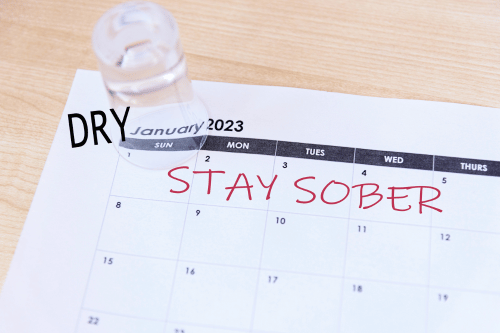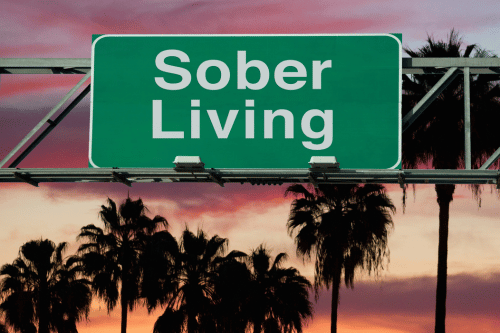

Understanding how long alcohol detox takes is a common question for those beginning recovery. Alcohol detoxification is the crucial first step in addressing substance abuse and preparing for therapy. Because alcohol is a central nervous system depressant, detox can trigger withdrawal symptoms that range from mild discomfort to life-threatening emergencies.
Alcohol significantly impacts the central nervous system, disrupting neurotransmitter balance and increasing the risk of serious health conditions such as cardiovascular disease and type 2 diabetes. When physical dependence develops, attempting to quit without medical supervision can lead to life-threatening withdrawal symptoms, including delirium, severe hypertension, or seizures. Medications, particularly benzodiazepines like diazepam, lorazepam, or chlordiazepoxide, are often administered to stabilize vital signs like blood pressure and heart rate, as well as manage behavioral changes during withdrawal.
At Sullivan Recovery, patients receive comprehensive support that includes tailored therapy, personalized nutrition planning, and effective relapse prevention strategies. Our outpatient programs are designed to address co-occurring mental health challenges, such as anxiety or depression, while simultaneously managing the physical effects of detox. This integrated approach helps patients restore their overall health, improve their mood, and build a strong foundation for long-term sobriety.

A frequent question is, “How many days does alcohol detox take?” or “How long do alcohol withdrawal symptoms last?” For the majority of individuals, acute detox lasts between five and seven days. However, the severity and duration can be influenced by several factors, including personal medical history, the frequency and amount of alcohol consumption, and the presence of co-occurring conditions like diabetes or dementia. Some patients may experience withdrawal complications that extend beyond the first week, necessitating extended care or ongoing medication support.
Following the acute detox phase, medications such as naltrexone or disulfiram may be prescribed to help maintain abstinence and reduce the likelihood of relapse. Beta-blocker treatments can also be beneficial in regulating blood pressure and heart rate, thereby reducing strain on the cardiovascular system during withdrawal. At Sullivan Recovery, our clinicians meticulously design safe, individualized detox plans that cater to each patient’s unique needs and adhere to the highest standards of medical detox, as recognized by organizations like American Addiction Centers.
The nervous system often reacts rapidly to the cessation of alcohol, frequently resulting in heightened activity in both the brain and body. Common early signs of alcohol withdrawal include headaches, insomnia, nausea, vomiting, and elevated stress levels. Some individuals may also experience changes in appetite, confusion, and hyperthermia as their central nervous system attempts to re-establish a balance in neurotransmitter activity, particularly GABA.
Without appropriate medical care, these symptoms can escalate within the first three days to more severe conditions such as delirium, hallucinations, or seizures. Medical detox significantly mitigates these risks through the administration of medications like phenobarbital or benzodiazepine therapy, effectively preventing dangerous progressions. At Sullivan Recovery, we provide comprehensive support, integrating therapy, nutritional guidance, and medication to alleviate withdrawal discomfort, lower relapse risk, and promote overall health and sobriety.
In some cases, alcohol withdrawal can progress to delirium tremens (DTs), a serious and potentially life-threatening medical emergency. DTs are characterized by severe disorientation, intense tremors, seizures, hallucinations, and dangerous fluctuations in blood pressure and heart rate. Without prompt medical intervention and detox, delirium tremens can be fatal.
Individuals with pre-existing conditions such as cardiovascular disease, type 2 diabetes, or dementia are at a significantly higher risk of developing DTs. At Sullivan Recovery, our licensed clinicians are equipped to manage these critical situations, utilizing medication to stabilize patients and reduce the risks associated with delirium, confusion, and potential relapse.

Patients undergoing alcohol detoxification may receive various medications to effectively manage withdrawal symptoms. Benzodiazepine drugs, including diazepam, lorazepam, and chlordiazepoxide, are commonly used to prevent seizures and reduce anxiety. Beta-blocker medications can help regulate heart rate and blood pressure during the withdrawal period.
Other crucial treatments include naltrexone and disulfiram, which are instrumental in supporting long-term sobriety after detox by reducing cravings or deterring alcohol consumption. In more challenging withdrawal cases, phenobarbital may be prescribed for its effectiveness in managing severe symptoms. These evidence-based treatments are administered in accordance with the highest standards of care, such as those set by American Addiction Centers.
Proper nutrition plays a vital role in the alcohol detoxification process. Many patients arrive at treatment centers with compromised appetites and significant vitamin deficiencies resulting from long-term alcohol abuse. Adequate and balanced nutrition is essential for supporting neurotransmitter function, stabilizing mood, and improving overall health outcomes during recovery.
Hydration is equally critical, particularly for individuals experiencing symptoms like vomiting, fever, or hyperthermia during withdrawal. At Sullivan Recovery, we place a strong emphasis on providing balanced meals and necessary supplements to help patients restore their physical health and reduce the risk of relapse after completing detox.
While detox addresses the immediate physical dependence on alcohol, sustained recovery necessitates therapy to confront the underlying psychological and emotional causes of addiction. Cognitive-behavioral therapy (CBT), for instance, is highly effective in helping patients develop coping mechanisms for stress, anxiety, and negative behavioral patterns that contribute to alcohol abuse. Therapy also plays a critical role in addressing co-occurring mental health conditions, such as depression, which frequently accompany substance use disorders.
Without ongoing therapeutic support, the risk of relapse remains significantly elevated, even after achieving initial abstinence. Sullivan Recovery’s outpatient therapy programs are designed to empower patients to maintain their sobriety while continuing to manage their work and family responsibilities, fostering a sustainable path to recovery.

Attempting to quit alcohol abruptly without the benefit of medical detox exposes individuals to severe and potentially life-threatening risks. The central nervous system, having adapted to the constant presence of alcohol, can become dangerously overstimulated upon cessation, often leading to hyperthermia, seizures, or delirium tremens. Medications such as benzodiazepines (e.g., diazepam, lorazepam, chlordiazepoxide) are crucial for stabilizing blood pressure, heart rate, and preventing these severe complications during withdrawal.
Patients with chronic health conditions, including cardiovascular disease or type 2 diabetes, face heightened risks of complications such as fever, confusion, or exacerbation of dementia symptoms if detox is not managed appropriately. A structured medical detox program may incorporate medications like phenobarbital, beta-blockers, or other supportive drugs to ensure patient safety. At Sullivan Recovery, our medical detox approach integrates close supervision, therapeutic interventions, and nutritional support, offering a significantly safer and more effective alternative to attempting withdrawal alone.
Alcohol abuse profoundly affects not only physical health but also mental well-being and behavior. During the detox process, individuals often experience intensified symptoms of anxiety, depression, stress, and insomnia, which can negatively impact mood and increase the risk of relapse. Chronic alcohol dependence can lead to long-term damage to the nervous system, elevating the likelihood of developing conditions such as dementia, persistent confusion, and neurotransmitter imbalances.
Sullivan Recovery provides integrated care that combines therapeutic interventions with careful medication management to stabilize both physical dependence and emotional well-being. Our programs are structured to support sobriety by addressing mental health conditions concurrently with substance abuse. This holistic approach better prepares patients to maintain abstinence and achieve lasting recovery after detox.
Patients frequently inquire about the duration of alcohol withdrawal symptoms and the overall length of alcohol detox. For most individuals, acute withdrawal symptoms subside within five to seven days. However, certain symptoms, such as headaches, insomnia, or nausea, can persist for several weeks. In some instances, individuals may experience post-acute withdrawal syndrome (PAWS), characterized by ongoing mood swings, appetite changes, and sleep disturbances.
Factors such as an individual’s medical history, the pattern and extent of alcohol use, and the presence of co-occurring diseases like type 2 diabetes or cardiovascular disease can influence the duration of recovery. Medications like naltrexone or disulfiram can be vital in supporting abstinence and reducing relapse risk beyond the initial detox period. Sullivan Recovery extends support well beyond the first week of detox through comprehensive therapy, outpatient care, and robust relapse prevention strategies.
Many people wonder about the quickest ways to flush alcohol from their system, especially after periods of heavy drinking. While adequate hydration, nutrition, and rest are essential for overall health and recovery, only time allows the body to fully metabolize and eliminate alcohol. The presence of withdrawal symptoms such as vomiting, severe headaches, or high blood pressure underscores the critical importance of medically supervised detox.
Evidence-based medical care may include medications like beta-blockers, benzodiazepine therapy, or phenobarbital to alleviate physiological stress on the body. Quick fixes or unproven at-home remedies are ineffective and cannot prevent serious risks like delirium, hallucinations, or seizures. At Sullivan Recovery, our focus is on providing safe and effective alcohol detoxification, complemented by therapy, nutrition, and relapse prevention, guiding patients from substance abuse toward sustained long-term sobriety.

The cost of alcohol detoxification can be a significant concern for individuals seeking treatment. Fortunately, most health insurance plans provide coverage for medical detox, therapy, and outpatient rehabilitation services. The extent of coverage typically depends on the patient’s specific medical history, the type of insurance plan, and the assessed need for treatment.
Sullivan Recovery actively collaborates with various insurance providers to ensure that detox and therapy services are accessible to as many patients as possible. Our commitment is to remove financial barriers, ensuring that cost does not prevent individuals from initiating their recovery journey.
Relapse is a common challenge following detox if comprehensive treatment and support are not in place. Individuals may be tempted to return to alcohol use as a coping mechanism for stress, lingering hangover symptoms, or intense cravings. This is particularly dangerous because a person’s tolerance to alcohol decreases significantly after a period of abstinence, increasing the risk of overdose or severe health complications if they resume drinking.
Effective relapse prevention strategies, including ongoing therapy, appropriate medication management, and participation in support groups, are crucial for maintaining sobriety. At Sullivan Recovery, we integrate robust relapse prevention planning into every patient’s individualized treatment program.
For many individuals in Orange County, outpatient medical detox offers a flexible and effective treatment option. Outpatient care allows patients to continue fulfilling their work, educational, and family responsibilities while receiving essential medical and therapeutic support. This model is particularly beneficial for those who require a structured yet adaptable approach to recovery.
Sullivan Recovery, located in Mission Viejo, provides comprehensive outpatient detox services, alongside specialized therapy and relapse prevention programs. Our evidence-based treatment modalities are aligned with national standards of care, mirroring the quality and effectiveness found at leading institutions like American Addiction Centers.
So, how many days does alcohol detox typically take? While acute detox usually lasts between five and seven days, the journey to recovery is a lifelong commitment. Detox effectively addresses the physical dependence on alcohol, but sustained sobriety relies on ongoing therapy, a commitment to a drug-free lifestyle, and proactive relapse prevention strategies.
Alcohol is a potent substance that can inflict significant damage on the central nervous system, heart, and overall health. Through medically supervised detox, comprehensive therapy, and dedicated outpatient support, individuals can successfully overcome substance abuse, achieve lasting abstinence, and embrace a healthier, more fulfilling life.
At Sullivan Recovery, as an in-network provider we work with most insurance plans, such as:
And More
If you or a loved one are struggling with mental health challenges or substance abuse, reach out to Sullivan Recovery today. Our team of compassionate professionals is here to support your journey towards lasting well-being. Give us a call at 949-836-7180.
Yes, alcohol detox can differ between men and women due to variations in body composition, metabolism, and hormonal profiles. Women often experience more intense withdrawal symptoms because alcohol tends to affect their central nervous system more rapidly. Medical detox protocols are designed to account for these physiological differences to ensure patient safety.
Older adults may require a longer period for detox due to slower metabolism, the presence of pre-existing health conditions, or the concurrent use of other medications. Age can also increase the risk of complications, such as cardiovascular issues or dementia. A structured medical detox program is essential to manage withdrawal safely in older patients.
Yes, patients who are using other substances like opioids or benzodiazepines, or taking medications for conditions such as diabetes or hypertension, may face additional risks during detox. Healthcare providers conduct thorough reviews of each patient’s medical history to adjust medications and prevent dangerous drug interactions. This highlights the critical importance of supervised medical detox.
Some individuals may develop post-acute withdrawal syndrome (PAWS), where symptoms like mood swings, anxiety, and insomnia persist beyond the initial seven-day period. Ongoing therapy, medication management, and outpatient care are crucial for managing these lingering symptoms effectively. Sullivan Recovery incorporates long-term support strategies into treatment plans to minimize relapse risk.